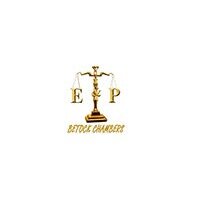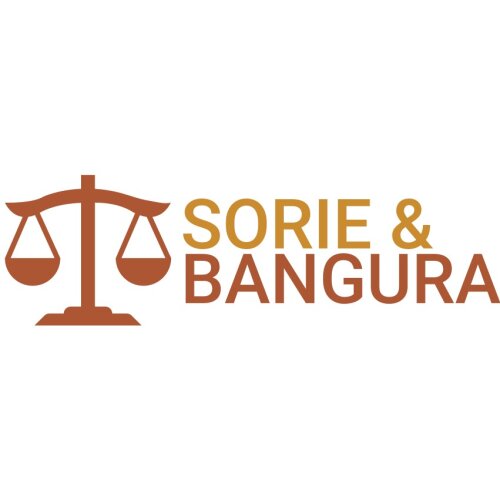Best Energy Regulatory Law Lawyers in Sierra Leone
Share your needs with us, get contacted by law firms.
Free. Takes 2 min.
Or refine your search by selecting a city:
List of the best lawyers in Sierra Leone
About Energy Regulatory Law in Sierra Leone
Energy Regulatory Law in Sierra Leone encompasses the set of legal frameworks, policies, and institutions that guide the generation, transmission, distribution, and usage of energy within the country. As a developing nation seeking to expand access to reliable electricity and support sustainable development, Sierra Leone has established regulatory bodies and enacted laws to manage both public and private sector activities in the energy sector. The regulatory framework is designed to encourage investment, protect consumer interests, meet environmental standards, and ensure efficient service delivery for all stakeholders.
Why You May Need a Lawyer
Navigating Energy Regulatory Law in Sierra Leone can be complex due to the technical nature of the industry and the interplay between multiple government agencies. You may require legal assistance if you are:
- Starting or operating an energy business, such as a renewable energy project or mini-grid.
- Facing disputes involving electricity tariffs, supply contracts, or service agreements.
- Applying for licenses or permits from regulatory authorities.
- Negotiating power purchase agreements or land acquisition for energy infrastructure.
- Dealing with environmental compliance or seeking clarification on climate-related obligations.
- Experiencing challenges with public utility companies or contesting regulatory decisions.
- Engaging in cross-border energy transactions or foreign investment in the sector.
A lawyer with experience in Energy Regulatory Law can clarify your rights, represent your interests in negotiations or hearings, and ensure your projects are compliant with all relevant regulations.
Local Laws Overview
Energy Regulation in Sierra Leone is primarily governed by the National Electricity Act 2011 and the jurisdiction of key agencies such as the Electricity and Water Regulatory Commission (EWRC). Key aspects of local laws include:
- Licensing and Permits: Anyone who generates, transmits, distributes, or trades electricity must comply with licensing provisions administered by the EWRC.
- Tariff Setting: The EWRC approves and sets tariffs to balance the interests of consumers and providers, subject to public consultations.
- Consumer Protection: Specific provisions exist to safeguard the rights of consumers, ensuring fair treatment and dispute resolution.
- Renewable Energy: Sierra Leone has policies promoting investment in renewable energy, including incentives for solar, hydro, and other clean energy technologies.
- Environmental Regulations: Projects must comply with the country’s environmental protection laws and obtain Environmental Impact Assessment (EIA) clearances where necessary.
- Foreign Investment: Foreign investors are welcome, subject to compliance with investment and sector-specific rules.
Frequently Asked Questions
What is the role of the Electricity and Water Regulatory Commission (EWRC)?
The EWRC is responsible for licensing electricity operators, setting tariffs, overseeing compliance, and addressing consumer complaints in the energy sector.
Who must be licensed under Sierra Leonean law?
All entities involved in the generation, transmission, distribution, import, export, or sale of electricity must obtain appropriate licenses from the EWRC.
How are electricity tariffs determined?
Tariffs are proposed by service providers and subject to review and approval by the EWRC, taking into account cost recovery, efficiency, and affordability for consumers.
What are the requirements for setting up a renewable energy project?
Applicants must obtain the necessary licenses, secure land and environmental permits, comply with technical standards, and sometimes engage in stakeholder consultations.
Can disputes with utility providers be resolved through the EWRC?
Yes, the EWRC has a dispute resolution process for handling disagreements between consumers and service providers, including hearings and investigations.
Are there incentives for investing in renewable energy?
Yes, the government offers tax incentives, customs exemptions, and streamlined regulatory processes to encourage renewable energy investments.
What environmental regulations apply to energy projects?
The Environment Protection Agency (EPA) requires Environmental Impact Assessments for energy projects, ensuring that developments do not harm the environment or communities.
Is foreign investment allowed in the energy sector?
Foreign investors can participate in the sector, provided they comply with national investment laws and obtain relevant licenses from the EWRC and other authorities.
What happens if I operate without a license?
Operating an energy business without the proper license is an offense and may result in fines, the shutdown of operations, or legal prosecution.
How can consumers file complaints about electricity services?
Consumers can submit complaints directly to the EWRC, which is mandated to investigate and resolve issues related to electricity supply or billing.
Additional Resources
Several institutions and organizations can provide further guidance or support regarding Energy Regulatory Law in Sierra Leone:
- Electricity and Water Regulatory Commission (EWRC): The primary regulator for electricity and water services.
- Ministry of Energy: Responsible for policy formulation, energy planning, and oversight of national projects.
- Environment Protection Agency (EPA): Handles environmental approvals and impact assessments for energy projects.
- Sierra Leone Investment and Export Promotion Agency (SLIEPA): Supports investors in navigating legal requirements.
- Sierra Leone Bar Association: Professional body for lawyers, can help you find an attorney with energy sector experience.
Next Steps
If you need legal assistance in Energy Regulatory Law in Sierra Leone, consider the following steps:
- Assess your specific needs and gather all relevant documents related to your energy project or issue.
- Contact the EWRC or other relevant government agencies for initial information on regulations, licensing, and compliance requirements.
- Consult with a lawyer who specializes in Energy Regulatory Law to review your options, ensure compliance, and represent your interests if you face legal or regulatory proceedings.
- If your matter involves environmental, investment, or land considerations, be sure to consult with the appropriate agencies early in your planning process.
- Remain informed through credible sources, workshops, or industry associations to keep up to date with legal and policy changes affecting the energy sector in Sierra Leone.
Making informed decisions and seeking timely legal advice can help you navigate the challenges and opportunities in Sierra Leone’s evolving energy sector.
Lawzana helps you find the best lawyers and law firms in Sierra Leone through a curated and pre-screened list of qualified legal professionals. Our platform offers rankings and detailed profiles of attorneys and law firms, allowing you to compare based on practice areas, including Energy Regulatory Law, experience, and client feedback.
Each profile includes a description of the firm's areas of practice, client reviews, team members and partners, year of establishment, spoken languages, office locations, contact information, social media presence, and any published articles or resources. Most firms on our platform speak English and are experienced in both local and international legal matters.
Get a quote from top-rated law firms in Sierra Leone — quickly, securely, and without unnecessary hassle.
Disclaimer:
The information provided on this page is for general informational purposes only and does not constitute legal advice. While we strive to ensure the accuracy and relevance of the content, legal information may change over time, and interpretations of the law can vary. You should always consult with a qualified legal professional for advice specific to your situation.
We disclaim all liability for actions taken or not taken based on the content of this page. If you believe any information is incorrect or outdated, please contact us, and we will review and update it where appropriate.
Browse energy regulatory law law firms by city in Sierra Leone
Refine your search by selecting a city.












